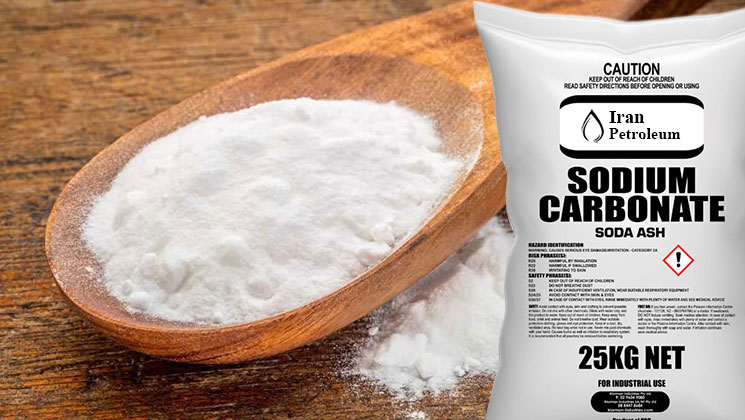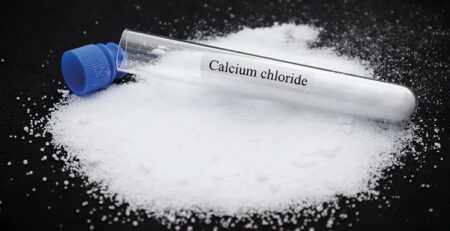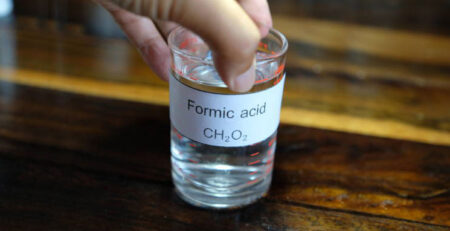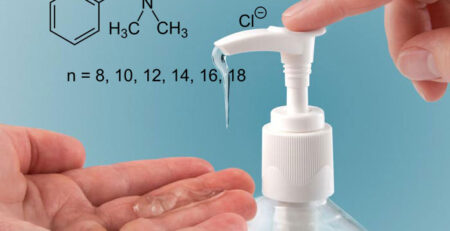Sodium Carbonate (Soda Ash)
In this article, we will discuss the nature of sodium carbonate, and its characteristics. It is also intended to provide the readers with efficient information on various types of it, their unique features, and applications. Moreover, it provides an explanation about Iran’s sodium carbonate production, and its privileges.
What is sodium carbonate?
Sodium carbonate, also known as soda ash, is a water-soluble white solid compound with the chemical formula Na2CO3. It is an odorless basic salt that has various applications across different industries. It is a white powder with a melting point of 851°C and a density of 2.54 g/cm³. The material is highly soluble in water, forming an alkaline solution that has a pH of around 11.
Soda ash is classified as a basic salt due to its alkaline nature and can react with acids to form carbon dioxide gas. It is also an electrolyte that can conduct electricity when dissolved in water. This is due to the presence of sodium ions and carbonate ions in the compound.
Specific characteristics of Soda Ash
Sodium carbonate has several unique characteristics, which include:
Solubility: It exhibits high solubility in water with a solubility of approximately 22 grams per 100 milliliters at room temperature. This characteristic renders it useful in various applications such as water softening, detergent production, and soap manufacturing.
Alkalinity: It is a naturally occurring alkaline chemical compound. This property makes it useful in various industrial processes, such as the production of glass, paper, and textiles.
Reactivity: It is highly reactive with acids. When it comes into contact with an acid, it undergoes a chemical reaction that produces carbon dioxide gas. This property makes it useful in a variety of chemical reactions and industrial processes.
Hygroscopicity: It is hygroscopic in nature, meaning it can readily absorb moisture from the air. This property makes it useful as a drying agent in various applications such as in the production of certain chemicals and as an additive in detergents.
Melting point: It has a melting point of approximately 851°C (1564°F), which makes it an ideal substance for high-temperature applications. This property enables it to be used in the production of ceramics and glass, where it can withstand extreme temperatures without undergoing significant changes in its chemical structure.
Different types of Soda Ash
There are two primary types of Soda Ash, including natural, and synthetic.
Natural sodium carbonate, which is also referred to as Trona, is a mineral. The mining process involves extracting the mineral from the deposits, and then processing it into soda ash. The primary applications of natural sodium carbonate include its use in glass production, detergents, and various chemical processes.
Synthetic sodium carbonate is a chemical compound that is manufactured through the Solvay process. This industrial process involves the reaction of salt with limestone and ammonia to produce sodium bicarbonate, which is then heated to obtain synthetic sodium carbonate.
There are also several other forms of Soda Ash, including soda ash light or natural soda ash, dense soda ash, and washing soda. These forms of soda ash have specific applications. For instance, the light soda ash is used in the manufacturing of glass containers. Dense soda ash is used in the manufacturing of detergents and chemicals. And the washing soda is used as a cleaning agent and water softener.
Various applications of Sodium Carbonate
Along with the other applications that have been mentioned, Sodium Carbonate is used in various industries, which include:
Manufacturing of glass: It plays a crucial role in the manufacturing of glass. It acts as a flux, which means it helps to lower the melting point of silica, the primary component of glass. By adding sodium carbonate, the melting point of silica is reduced, making it easier to shape and mold glass into various forms.
Food additive: It is a common food additive that is used in various products such as baking powder. In baking powder, it acts as a leavening agent by releasing carbon dioxide gas when exposed to moisture and heat, thereby causing the dough or batter to rise.
Water treatment: It is commonly used in water treatment to increase the pH level of acidic water. When added to water, it reacts with the hydrogen ions in the acidic solution and forms sodium ions and bicarbonate ions. This process helps to neutralize the acidity of the water and make it more alkaline.
Cleaning agent: It is a highly effective cleaning agent that is widely utilized in various cleaning products such as laundry detergents, dishwashing detergents, and other household cleaning agents. Its powerful cleaning properties make it an excellent choice for removing dirt, grease, and stains from clothes and other surfaces.
The production of Sodium Carbonate in Iran
Sodium Carbonate is produced in Iran by several companies using different methods, such as Solvay process, and Leblanc process. Each of these companies has a high capacity of producing sodium carbonate.
Iran utilizes a production process for obtaining sodium carbonate that involves mining, crushing, and refining raw materials. The quality of the final product is significantly impacted by the equipment used in each stage of production. The use of modern equipment and advanced technology can result in high-quality sodium carbonate with low impurities.
Iran is known for producing high-quality sodium carbonate using natural resources such as trona ore and brine water, which are abundant in the country. The production process involves using pure raw materials that have a purity level of up to 99.5%, ensuring that the final product is of high quality and suitable for use in various industries that require high-quality sodium carbonate.
Iran has a competitive edge in the production of sodium carbonate due to its abundant natural resources and low labor costs, making it a cost-effective option for businesses. Iranian-produced sodium carbonate can be sold at a lower price than those produced by other countries, which makes it an attractive option for businesses looking to reduce their production costs.
Iran’s Soda Ash
Iranian-produced soda ash is an eco-friendly alternative that is produced using natural resources and does not involve any harmful chemicals or by-products. This makes it a sustainable option for businesses that aim to reduce their environmental impact. The production process used in Iran is environmentally responsible, and it ensures that the product is safe to use and dispose of.
Iran is known for producing two distinct types of soda ash, namely heavy and light. Heavy soda ash is characterized by its higher density and is primarily utilized in industries such as glass production. On the other hand, light soda ash has a lower density and finds its use in industries such as detergent manufacturing.
Please do not hesitate to contact Iran Petroleum if you are looking for the best quality and price offer for Sodium Carbonate (Soda Ash) produced in Iran. Our experts are dedicated to offering you the highest quality at the most affordable prices, and we guarantee that we will provide you with your needs in the fastest time possible.






Leave a Reply